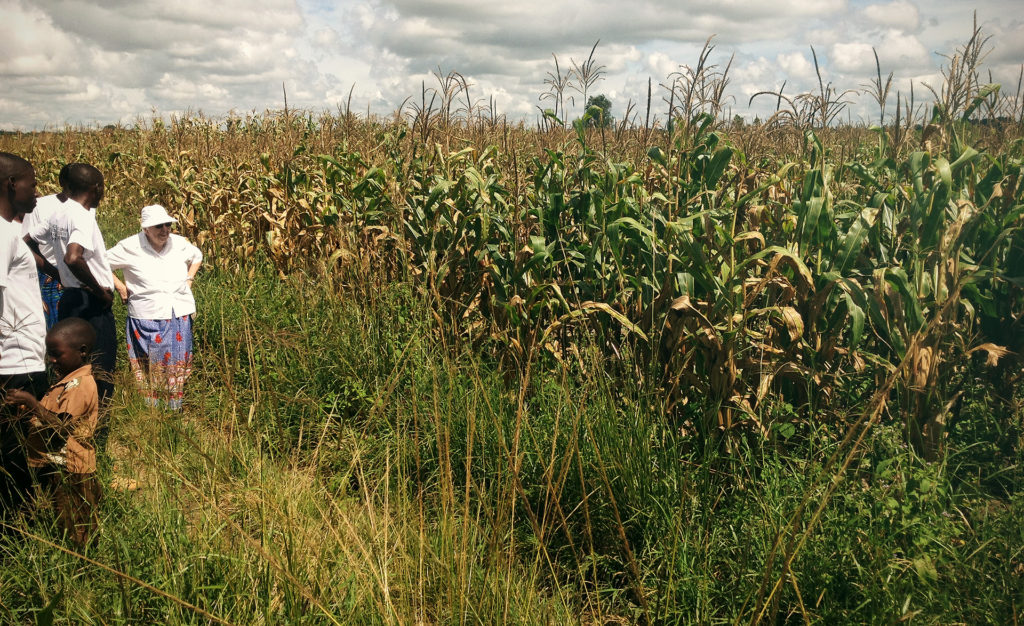Farming Programs
Providing a sustainable food source

In Malawi, subsistence farmers make up 85% of the population and women produce 75% of the nation’s food supply. Households affected by HIV/AIDS (caring for orphans or ill relatives and neighbours) represent 64% of Malawi’s population. Extremely poor and vulnerable households struggle to survive with these additional burdens. Life expectancy is 55 years.
In light of these bleak statistics, the farming program is one of the central projects supported by the Foundation:
- Fertilizer and seed: The communities of Mnjale, Fuse and Chilundu practice subsistence agriculture, which is made more difficult by the poor quality of the soil. Every year, the Foundation sends funds for the purchase of much needed fertilizer and seeds for several gardens maintained by the grandmothers, aided by young volunteers from the villages.
- Emergency food relief: When the communities face a poor harvest, the Foundation also provides the grandmothers and children with emergency maize meal (the local staple food). The grandmothers have also received training in grain storage methods and nutrition.
